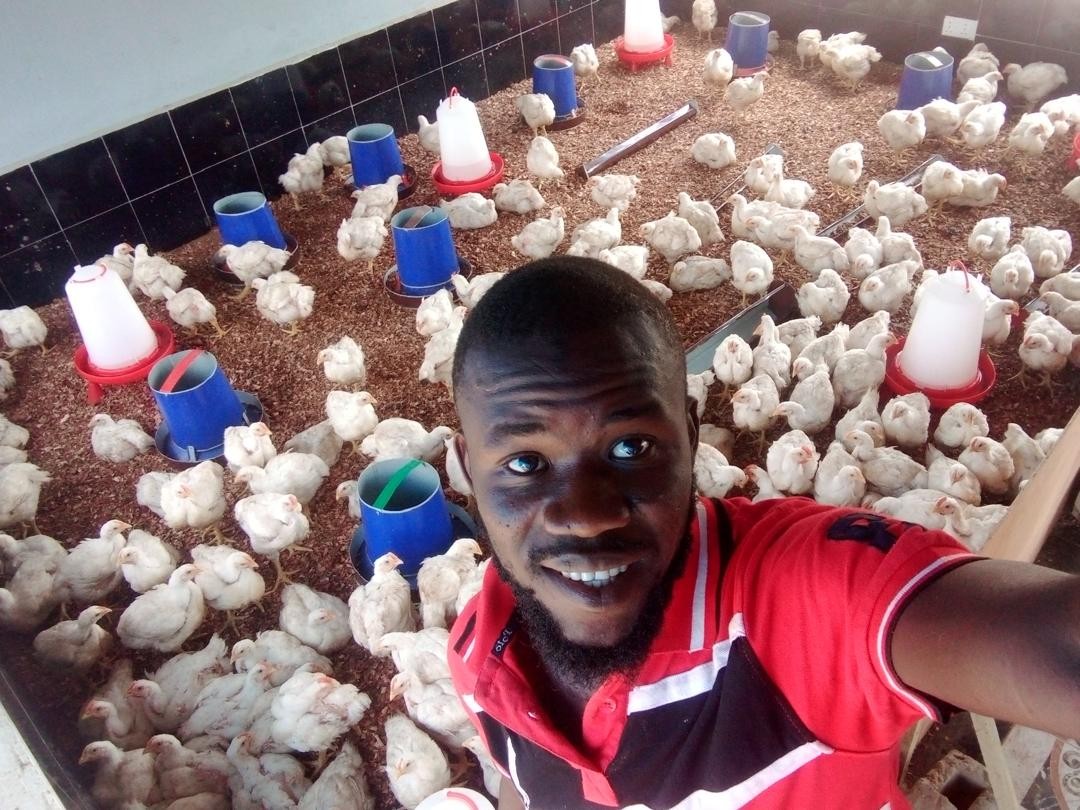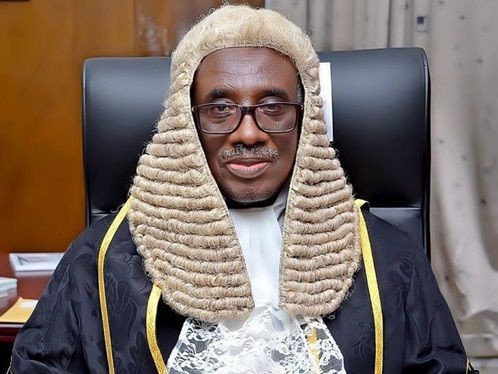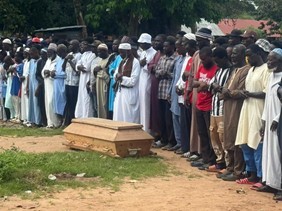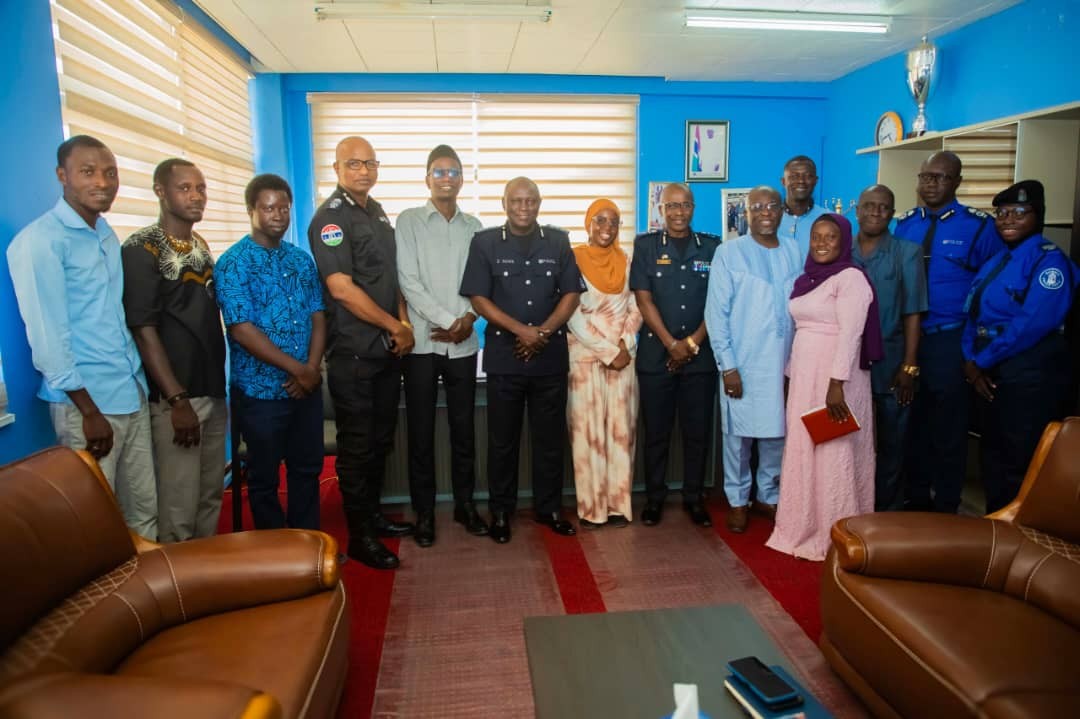Abdoulie Ceesay, the backway returnee, left The Gambia in May 2014 to pursue his dreams of finding a better life in Europe, little did he know of the dangers his dreams would lead him to.
Abdoulie grew up in the Kanifing Municipality, Talinding to be precise, in an extended family that could barely make ends meet.
He dropped out of school to embark on farming activities at his father’s home village called Jarra Toniataba, Lower River Region, before joining his uncle in Senegal, and then eventually on back-way journey.
It was during his time in the village that he decided he would take the backway — a colloquial term used in the country to refer to irregular migration to Europe.
“I decided I would take the journey to make life easier for us. Although my father disagreed with my choice, I was determined to travel and change our situation,” he narrates. “There were many others with me.”
Abdoulie further recounted his journey as a then-20-year-old: “We paid D14,000 (approximately USD 280) before we left Banjul [the capital city] and travelled by road in the back of a pick-up truck through Senegal, Mali, Burkina Faso and Niger.”
Two months later, Abdoulie and the others reached Algeria, the last stop before the Eldorado.
Unfortunately, Abdoulie’s story is not unusual. Each year, thousands of Africans brave the Sahara Desert for an opportunity to live in North Africa or Europe. In 2018, almost 117,000 people reached Europe through the Mediterranean Sea, and many of them came from West and Central Africa.
Gambian migrants are mostly young men aged between 18 and 35. Like Abdoulie, they hear of the backway through friends who “made it” to Europe. In many ways, reaching Europe is still the sign of success for many young Gambians.
“I started communicating with my friends who had taken the journey to Libya and succeeded in crossing to Italy. They thought I should come too, as life was sweeter there,’’ Abdoulie recounted. His younger brother, Lamin, had also crossed to Europe. When Lamin arrived, he applied for asylum, but his application was rejected.
Despite this, Abdoulie succumbed to peer influence from his friends in Europe, soon finding himself stranded in a country embroiled in conflict.
After arriving in Sabha, Southern Libya, Abdoulie was approached by numerous ‘middlemen,’ acting as agents for smugglers arranging onward trips to the capital, Tripoli. For three months, he declined offers, instead using his savings to sell spaghetti and cigarettes.
Finally, Abdoulie came across a Gambian smuggler, with whom he shared a mutual friend back home. With a price of D7,000 (approximately USD 140), he was on his way to Tripoli one step closer to his envisioned final destination.
Arriving in Tripoli amid political insecurity and deteriorating socioeconomic conditions, Abdoulie spent two months with other migrants, all waiting to be put in a boat, in a worn down house run by smugglers. With his mother sending him additional money, he racked up the D 30,000 (approximately USD 600) needed to be placed on an overloaded dinghy with 149 other hopefuls.
However, his dreams were quickly shattered after four failed attempts to cross to Italy. Each time, the Libyan coastguards intercepted their boat and turned them back. He was apprehended and held in prison for months.
Now having spent over half-a-year in Libya, he connived with other inmates to escape and make one last attempt to Italy. On this attempt, his dinghy ran out of fuel and strayed off course at sea for three days, with one individual perishing before being rescued off the coast. They were brought to safety onshore; some were taken to a hospital, while Abdoulie and others were taken to a migrant shelter.
In this situation, Abdoulie was left with a crucial decision: make one more go for Europe or return home.
“Initially, I did not want to go home as I would feel ashamed and disappointed,” he reasoned. “But, after three months, I realised I was wasting my time and that I should return to my country and start all over.” He alluded to the often-overwhelming stigma returning migrants face in their communities after unsuccessful attempts to reach Europe.
According to him, International Organisation for Migration (IOM) came and requested to provide voluntary return assistance. In July 2017, he returned to The Gambia a week before Tobaski.
Abdoulie is one of over 250 Gambians to voluntarily return home through the EU-IOM Joint Initiative for Migrant Protection and Reintegration, launched in The Gambia in November 2017 through funding from the EU Emergency Trust Fund for Africa (EUTF).
The Joint Initiative is the first comprehensive programme to save lives and protect and assist migrants along key migration routes in Africa. It covers 26 African countries in the Sahel and Lake Chad, the Horn of Africa and North Africa regions. The project supports the reintegration process of returning migrants through an integrated approach, which addresses economic, social, and psychological dimensions and fosters the inclusion of communities in the process.
In May 2018, IOM The Gambia signed an agreement with EMPAS Poultry Processing Company Ltd., a Gambian-owned local enterprise, to provide on-the-job training to 64 returnees —equipping them with the technical skills and start-up kits to set up or strengthen an existing microenterprise in poultry farming.
“I began my reintegration counselling a few months after my arrival,” Abdoulie started perceiving a new world. “I decided I would set up a poultry venture, as my father maintained a small poultry farm at home. I wanted to continue his legacy.”
In November 2018, Abdoulie was among 13 returned migrants to form the first batch of graduates from the poultry farming program.
However, their graduation package consisted of 500 chicks, chicken feed, poultry medication, equipment and tools for the construction of a chicken coop.
Nevertheless, re-establishing oneself is not without its challenges. Abdoulie recalls returning home with mixed feelings. “My parents were against my coming back as I couldn’t achieve what I set out to do,” he cited one of his embarrassments. Now, with a stable income, he hopes he has proven his parents wrong.
Three months into his poultry business, Abdoulie sold off the first brood of chickens. “I have been able to sell nearly all my chickens. My customer base has increased significantly; many in my neighbourhood now buy chicken from me instead of imported chicken from the market,” he said. In the future, he hopes to see his poultry farm grow bigger to create employment opportunities for young people in his community.
Despite Abdoulie’s dreams of greener pastures in Europe, his return has renewed his sense of hope. He believes nobody should die taking the ‘backway’ when existing local opportunities can be explored to create a dignified life. “If you have the money to travel to Libya, you should invest it in making a sustainable livelihood here,” he advises. “I have seen many friends who died along the way and others are still missing. This is a big tragedy that can only be solved if we believe in ourselves to make it at home.” he challenges all and sundry, especially the youth.






